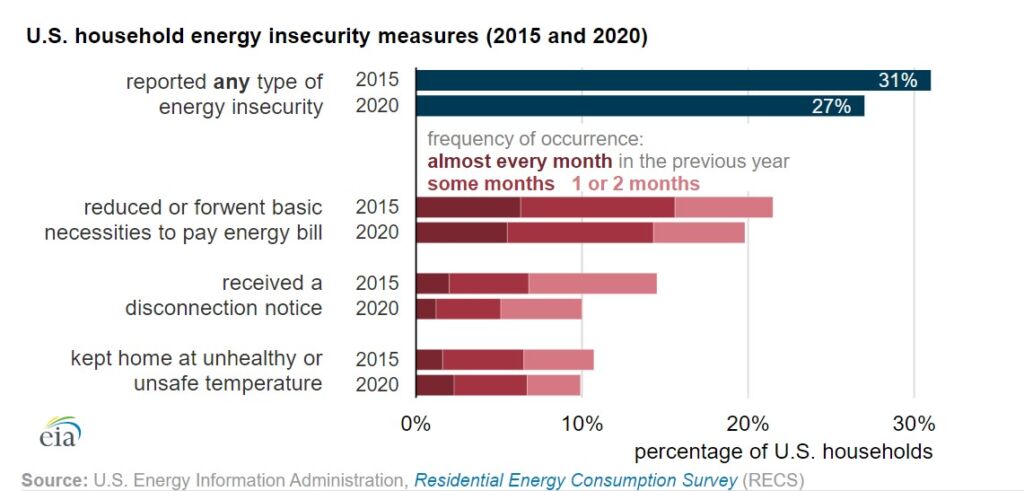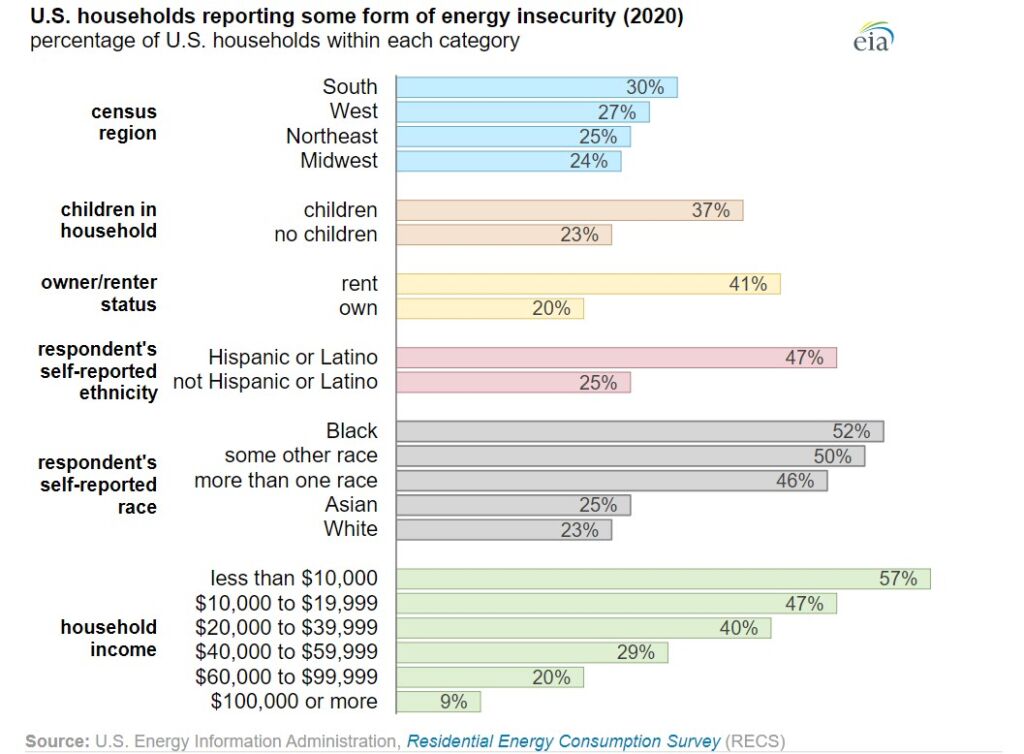Federal data shows low-income households most likely to face energy poverty
The U.S. Energy Information Administration recently released some of the findings of their 2020 Residential Energy Consumption Survey (RECS), which asks respondents a series of questions about their households and how they use energy. Unsurprisingly, the survey found that low-income households were at the most risk of energy insecurity.
The RECS measures household energy insecurity by asking a series of questions about challenges paying energy bills or conditions of unsafe temperatures attributable to energy cost concerns.
In 2020, 34 million U.S. households (27 percent of all U.S. households) reported difficulty paying energy bills or reported that they had kept their home at an unsafe temperature because of energy cost concerns, which is lower than the 37 million households, or 31 percent of households who reported similar issues in 2015.

Energy insecurity was likely low during 2020 because COVID caused the prices of many fuels to drop, and many electric companies were prohibited from issuing disconnection notices during the pandemic. As energy prices have increased over the last 17 months, the number of people struggling to keep up with their bills has almost certainly increased.
Rising energy prices harm all Americans, but low-income families, many of whom are black or Hispanic, are hurt the most.
EIA’s RECS survey found 57 percent of households making less than $10,000 per year reported some form of energy security, as did 47 percent of households making between $10,000 and $20,000, 40 percent making $20,000 to $40,000, 29 percent making $40,000 to $60,000, 20 percent making $60,000 to $100,000, and only 9 percent for households making $100,000 or more.

Furthermore, 52 percent of black households reported suffering from energy security, and so did 47 percent of Hispanic or Latino households. Unfortunately, these are the demographics that are hurt the most when liberal energy policies make our energy less reliable and more expensive.
This is why American Experiment initiated a campaign to reach out to new audiences with our radio ads on Minnesota’s rising cost of energy. The radio ads will run throughout the state in English, Spanish, and Somali. You can listen to the ads by clicking here.